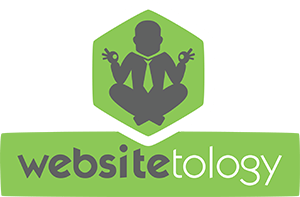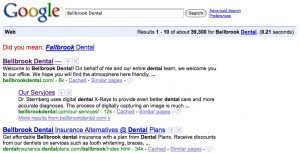If you aren’t maintaining a website for your business, you aren’t really in business anymore.
With the advent of google on cell phones, it’s become absolutely critical to have a site that Google can find. Not only that, but it’s not enough to just build a website- you also need to build a community- and we’ll teach you how.
If you have a site that uses web 2.0 technology like RSS, CSS and allows for comments: and come to our seminar, you will be able to get listed on the first page of Google (without paying for ads). We can teach you how to be a webmaster in one day- without having to learn any code.
Spend a day with us and learn everything you need to know about how the web works- but the secrets of how you get to the first page of Google without paying for ads.
We’ll teach you how to maintain a website using the newest coolest Web 2.0 tools- which means nothing to buy, no code to learn and the ability to connect with customers easier than ever before.
What we preach is organic search engine optimization as opposed to paying for “Search Engine Optimization†voodoo. It’s much more cost effective and it actually works.
Your website can become a powerful business tool and easy to use if you take this seminar. Your webstats will prove it in no time.
So sign up now– we know you’ll become one of our many successful Websitetologists.
Wed Jul 8, 2009 at The Next Wave, 100 Bonner Street Dayton OH 45410 from 8:30 am to 4:30 pm.
I almost had a heart attack this morning. When looking at search results for a client- there were two little boxes next to every listing: Promote and Remove.
This puts the power of the ranking in the hands of the cloud- not in the hands of “Search Engine Optimization” experts.
However, it didn’t take long to do a search- and find the following:
Today we’re launching SearchWiki, a way for you to customize search by re-ranking, deleting, adding, and commenting on search results. With just a single click you can move the results you like to the top or add a new site. You can also write notes attached to a particular site and remove results that you don’t feel belong. These modifications will be shown to you every time you do the same search in the future. SearchWiki is available to signed-in Google users. We store your changes in your Google Account. If you are wondering if you are signed in, you can always check by noting if your username appears in the upper right-hand side of the page.
The changes you make only affect your own searches. But SearchWiki also is a great way to share your insights with other searchers. You can see how the community has collectively edited the search results by clicking on the “See all notes for this SearchWiki” link.
So, this is only for my benefit? Who are they kidding? This is just one more way for Google to accumulate information about your site- and what it’s most dedicated users are thinking.
There is also a Comment bubble at the end of each listing- and this will be shared among all users.
If there is one industry that should be shaking in their shoes right now- it’s the Yellow Pages directories. With no user interaction, and static displays (yep- that’s the reality of print) there is no reason to ever use a Yellow Pages directory again- especially with Google available just one toll free call away at 1-800-Goog-411. All small businesses should be sure to register with Google Local, it’s more important than ever.
Take a look at your Google search rank now- and, realize, the days of gaming for the top of the search are ending now.
Chris Pearson is one of the premier WordPress developers. He understands WordPress as well as anyone- and he has a post on his site that everyone should read, here is an excerpt:
categories are a powerful tool that bloggers can use to exercise precise control over content in a dynamic environment.
Unfortunately, the true power of categorized content has been masked by the one size fits all implementation you see everywhere on the Web—the proverbial long, ugly list of category links now appearing on a blog near you.
As luck would have it, that awful category list also turns out to be a very poor presentational strategy for your site… But why?
Why Your Category List Isn’t Doing You Any Favors
By giving users a list of categories to browse on your site, you are creating a psychological conundrum that usually leaves them with a severe case of analysis paralysis. This is a condition where users, when presented with too many options, end up selecting nothing at all.
Being presented with more choices, even good ones, can hinder effective action. In one study, doctors couldn’t make a decision when a second promising drug showed up.
— Fast Company, November 2007
Counter-intuitive? Maybe. Human nature? Absolutely.
Whether you’re selling products, writing copy, or designing interfaces, you can benefit from playing into basic human psychology. And interestingly, with Website categories, accommodating natural human behavior also turns out to be an excellent SEO strategy
Automated SEO and Content Management with Categories
At first glance, it seems convenient that WordPress automatically creates category pages, tag pages, and just about every other type of page you can imagine1. Dig a little deeper, though, and you’ll find that this form of page bloat is a remarkably poor site-building practice—it’s a condition that should be avoided whenever possible.
As far as blogs are concerned, categories are the single biggest contributor to both page bloat and link dilution, two of the most abominable SEO sins. Ironically, when used properly, these same categories hold the key to efficient, automated site optimization and content management…
The difference, of course, is all in how you use them. Armed with a bit of knowledge and a few lines of code, you’ll be able to use categories to:
display content however you like, wherever you like
link directly to interior pages—not to interstitial “bloat†pages like monthly archives or category archives
provide your users with a smarter, more intuitive way to browse content that may be of interest to them… read the rest at:
What Every Blogger Needs to Know About Categories — Pearsonified.
I like to think of Categories as the table of contents to your site (in this metaphor- tags would be the index)- they are there to help a reader find what they are most interested in, and to group posts of a similar nature.
They are also a powerful tool to refresh old content in Google’s eyes- by collecting old posts with new posts Google sees the category as a new mix of keywords every time you add content to a category.
We can also use categories to present information in different places or in different ways if we want, but for the most part, they are a critical component of navigation. Read Chris’s whole post to learn more.


